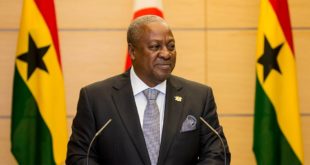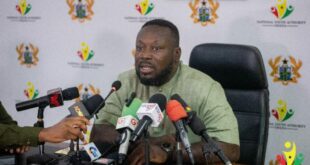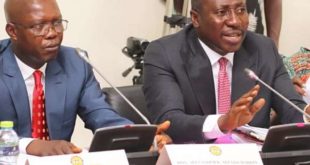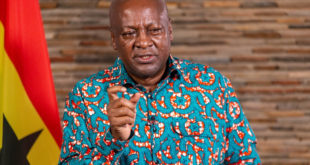
President John Dramani Mahama has, in accordance with Article 146(6) of the 1992 Constitution and in consultation with the Council of State, determined that a prima facie case has been established regarding three petitions submitted against Chief Justice Gertrude Araba Esaaba Sackey Torkornoo.
A statement released on Tuesday, April 22, indicated:
“Pursuant to Article 146(10) of the Constitution and based on the advice of the Council of State, the President has by a warrant, suspended the Chief Justice with immediate effect, pending the outcome of the committee’s proceedings.”
The statement, signed by the Minister in Charge of Government Communication, Felix Kwakye Ofosu, also noted that the President has set up a five-member committee to investigate the petitions. The committee members are:
1. Justice Gabriel Scott Pwamang, Justice of the Supreme Court – Chairman
2. Justice Samuel Kwame Adibu-Asiedu, Justice of the Supreme Court – Member
3. Daniel Yaw Domelevo, former Auditor-General – Member
4. Major Flora Bazwaanura Dalugo, Ghana Armed Forces – Member
5. Professor James Sefah Dzisah, Associate Professor, University of Ghana – Member
Earlier, President Mahama submitted the petitions to the Council of State for advice, in line with constitutional procedure. The Chief Justice has since responded to the allegations.
Meanwhile, the Supreme Court has scheduled May 6, 2025, to hear injunction applications aimed at halting the process to remove the Chief Justice. At the last hearing, a panel chaired by Justice Osei Bonsu, and composed of four instead of five members, adjourned the case due to the absence of Justice Samuel Asiedu.
Former Attorney General Godfred Yeboah Dame, representing Old Tafo MP in one of the suits, argued that the President must halt consultations with the Council of State until the injunction matter is resolved. However, Attorney General Dr Dominic Ayine countered, asserting that no law prevents the President from fulfilling his constitutional duties.
“This is the performance of a constitutional duty, and the law is clear that you cannot enjoin the performance of a constitutional or public obligation,” Dr Ayine emphasized.
 GhArticles.com Every News in Detail
GhArticles.com Every News in Detail



